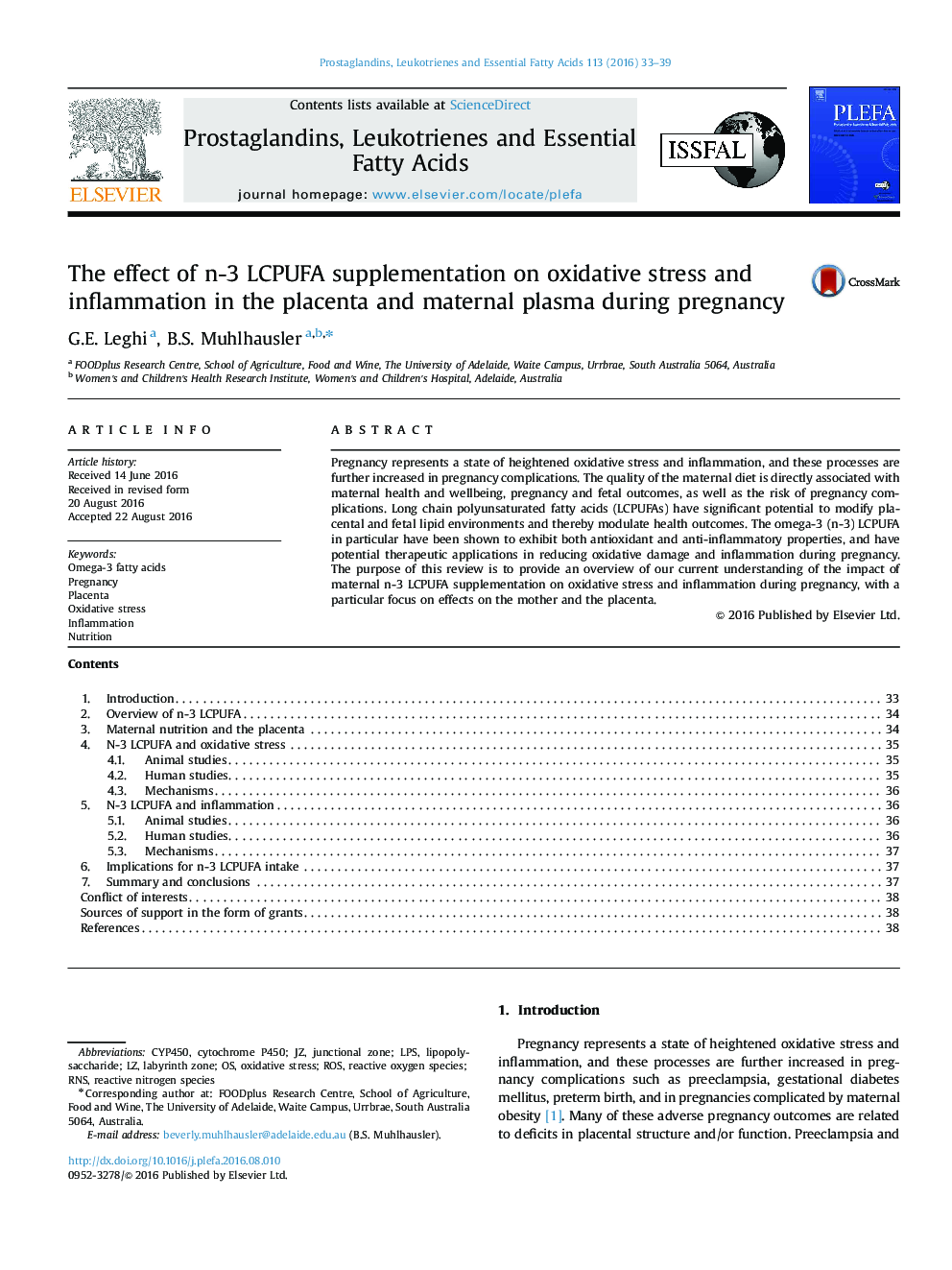| Article ID | Journal | Published Year | Pages | File Type |
|---|---|---|---|---|
| 2777417 | Prostaglandins, Leukotrienes and Essential Fatty Acids (PLEFA) | 2016 | 7 Pages |
•N-3 LCPUFA can reduce placental oxidative stress at low/moderate doses, but increase oxidative stress at high doses.•The preterm placenta is more sensitive to oxidative damage by n-3 LCPUFA.•N-3 LCPUFA increase placental resolvin and protectin concentrations.•N-3 LCPUFA can decrease levels of maternal pro-inflammatory mediators.•Further studies are needed to resolve issues around the most effective dose and timing of n-3 LCPUFA intervention.
Pregnancy represents a state of heightened oxidative stress and inflammation, and these processes are further increased in pregnancy complications. The quality of the maternal diet is directly associated with maternal health and wellbeing, pregnancy and fetal outcomes, as well as the risk of pregnancy complications. Long chain polyunsaturated fatty acids (LCPUFAs) have significant potential to modify placental and fetal lipid environments and thereby modulate health outcomes. The omega-3 (n-3) LCPUFA in particular have been shown to exhibit both antioxidant and anti-inflammatory properties, and have potential therapeutic applications in reducing oxidative damage and inflammation during pregnancy. The purpose of this review is to provide an overview of our current understanding of the impact of maternal n-3 LCPUFA supplementation on oxidative stress and inflammation during pregnancy, with a particular focus on effects on the mother and the placenta.
